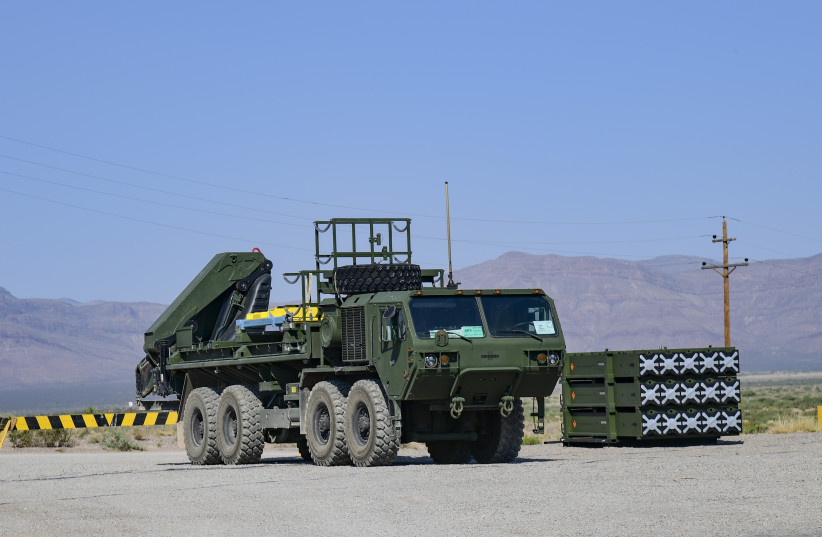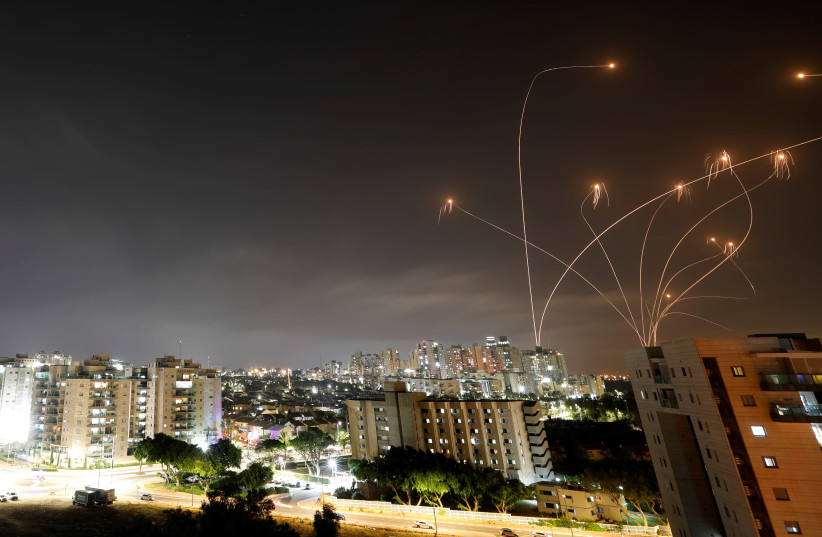A report in Defense News said the US Army chose the Dynetics Enduring Shield instead of Iron Dome following a shoot-off between the two missile defense systems.
ANNA AHRONHEIM
AUGUST 25, 2021 11:25

Shortly after the United States military successfully carried out its first live-fire test of the Iron Dome missile defense system, the Army decided against the Israeli-made system for its enduring system to counter aerial threats.
According to the report, the US Army chose Leidos-owned Dynetics’ launcher following a shoot-off between the two systems.
The system produced by Dynetics, called Enduring Shield, has 360-degree detection and the ability to fire at multiple threats simultaneously. The system is simple to operate and can be fully integrated with the Army’s Integrated Air and Missile Defense Battle Command System.
cnxps.cmd.push(function () { cnxps({ playerId: ’36af7c51-0caf-4741-9824-2c941fc6c17b’ }).render(‘4c4d856e0e6f4e3d808bbc1715e132f6’); });
The decision came after the US Army carried out a series of successful interception tests last month at White Sands Missile Range in New Mexico.
Israel’s Defense Ministry and Rafael Advanced Defense Systems told The Jerusalem Post that they would not be commenting on the report by Defense News, but it is expected to be a significant setback for the ministry.
 Streaks of light are seen as Israel’s Iron Dome anti-missile system intercepts rockets launched from the Gaza Strip towards Israel, as seen from Ashkelon, Israel May 10, 2021 (credit: REUTERS/AMIR COHEN)
Streaks of light are seen as Israel’s Iron Dome anti-missile system intercepts rockets launched from the Gaza Strip towards Israel, as seen from Ashkelon, Israel May 10, 2021 (credit: REUTERS/AMIR COHEN)According to a report in Calcalist, though the average price of the system is around NIS 27 million (8,400,000 USD), IAI said that each system is adapted to the needs of each customer and therefore the system does not have a fixed price.
Israel Aerospace Industries, which manufactures the radars for the Iron Dome, has made a record of $4.2 billion in 2020 in sales from the multi-mission radar to several countries. Around 150 MMR radars, the brains of the system, have been sold to customers around the world, Calcalist said.
The US Army purchased the two off-the-shelf batteries from Rafael in August 2019, which were delivered in late 2020. The army has since been in the process of examining and building training systems for the batteries.
The purchase was made to fill its short-term needs for an Indirect Fire Protection Capability (IFPC) until a permanent solution to the problem is put in place to best protect ground maneuvering troops against an increasingly wide range of aerial threats, including short-range projectiles.
The purchase of the batteries included 12 launchers, two sensors, two battlement management centers and 240 interceptors.
According to a January report in Haaretz, Israeli defense sources said that Washington would be deploying the systems at American military bases in the Gulf in order to defend its forces from attacks by Iran or its proxies.
The prime contractor for the development and production of the Iron Dome is Rafael Advanced Systems. The MMR radar is developed by ELTA, a subsidiary of Israel Aerospace Industries (IAI), and the command and control system (BMC) is developed by mPrest.
The fully mobile system carries 10 kg. of explosives and can intercept an incoming projectile from four to 70 km. away. It is able to calculate when rockets will land in open areas, choosing not to intercept them, or toward civilian centers.
In use since 2011, the Iron Dome, which is designed to shoot down short-range rockets, is an integral component of Israel’s multi-layered defense array.
The Arrow-2 and Arrow-3 systems intercept ballistic missiles outside of the Earth’s atmosphere, while the David’s Sling missile defense system is designed to intercept tactical ballistic missiles and medium- to long-range rockets, as well as cruise missiles fired from ranges of 40 km. to 300 km.
Content retrieved from: https://www.jpost.com/international/us-army-decides-against-israels-iron-dome-to-counter-aerial-threats-677667.